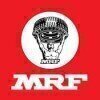Mechanical Maintenance Engineer
300+ Mechanical Maintenance Engineer Interview Questions and Answers

Asked in Suzlon Group

Q. What is the difference between tensioning and torqueing?
Tensioning involves stretching a fastener to a specific load, while torqueing involves tightening a fastener to a specific torque value.
Tensioning is typically used for critical applications where precise load control is required.
Torqueing is more commonly used in general applications where a specific torque value is sufficient.
Tensioning is often used in applications like bolted joints in bridges or aircraft structures.
Torqueing is commonly used in automotive assembly for ti...read more

Asked in Sodexo

Q. How do you align a pump and motor?
Alignment of pump and motor involves ensuring proper positioning and parallelism to optimize performance and prevent damage.
Start by checking the alignment specifications provided by the pump and motor manufacturers.
Use alignment tools such as dial indicators, laser alignment systems, or reverse indicator method.
Ensure the pump and motor shafts are clean and free from any debris or damage.
Check and adjust the motor and pump base plates for proper leveling and alignment.
Align ...read more

Asked in Reliance Industries

Q. What is the role of a maintenance engineer in a refinery?
Maintenance engineer plays a crucial role in ensuring the smooth functioning of refinery operations.
Developing and implementing maintenance strategies to minimize downtime and maximize efficiency
Conducting regular inspections and identifying potential issues before they become major problems
Coordinating with other departments to schedule maintenance activities and minimize disruption to production
Ensuring compliance with safety regulations and maintaining a safe working envir...read more

Asked in Jindal Stainless Steelway

Q. What is the working mechanism of the brake system in an electric overhead traveling (EOT) crane?
The brake system in an EOT crane works by applying friction to stop the motion of the crane.
The brake system consists of brake shoes or pads that are pressed against the brake drum or disc to create friction and stop the motion of the crane.
When the brake is engaged, the brake shoes or pads are pressed against the rotating drum or disc, creating friction and slowing down or stopping the crane.
The brake system is typically controlled by a brake control unit that receives signa...read more

Asked in Jindal Stainless Steelway

Q. What is the working mechanism of the hydraulic system in a coil car?
Hydraulic system in a coil car uses fluid pressure to lift and move heavy coils efficiently.
Hydraulic pump generates pressure by forcing hydraulic fluid into cylinders
Cylinders extend or retract to lift or lower the coil
Valves control the flow of hydraulic fluid to the cylinders
Pressure relief valves prevent overloading and ensure safety
Hydraulic reservoir stores the fluid for the system
Example: When the coil car needs to lift a heavy coil, the hydraulic pump pressurizes the ...read more

Asked in Sodexo

Q. How do you identify a worn bearing number?
To find out a worn bearing number, inspect the bearing for visible signs of wear and refer to the bearing manufacturer's documentation.
Inspect the bearing for signs of wear such as discoloration, pitting, or scoring on the bearing surface.
Check for excessive play or looseness in the bearing when it is rotated.
Refer to the bearing manufacturer's documentation or catalog to identify the bearing number based on its physical characteristics.
Measure the dimensions of the bearing a...read more
Mechanical Maintenance Engineer Jobs




Asked in Hindustan Petroleum

Q. Is Radiographic Testing (RT) used in small bore socket welds?
No, RT is not used in small bore socket weld.
Small bore socket welds are typically inspected using visual inspection and dye penetrant testing.
Radiographic testing (RT) is not necessary for small bore socket welds.
RT is typically used for larger welds or critical applications where defects could have severe consequences.

Asked in Innovassynth Technologies

Q. What is the permissible vacuum drop for reactor vacuum testing?
The permissible vacuum drop for reactor vacuum testing depends on various factors such as the type of reactor and its design specifications.
The permissible vacuum drop can vary depending on the type of reactor being tested.
For some reactors, a vacuum drop of 5-10% may be considered acceptable.
In other cases, a vacuum drop of less than 2% may be required.
The specific permissible vacuum drop should be determined based on the reactor's design specifications and industry standard...read more
Share interview questions and help millions of jobseekers 🌟

Asked in Hems Corporation

Q. What is the procedure for balancing a hammer during the replacement of a crusher hammer?
Balancing a hammer during crusher hammer replacement involves following a specific procedure to ensure proper functioning.
Remove the old hammer carefully to avoid damage to the crusher
Inspect the new hammer for any defects or damage before installation
Use a balancing machine to check the balance of the new hammer
Adjust the weight of the hammer by adding or removing material as needed
Ensure the hammer is properly balanced before installing it in the crusher
Asked in Hems Corporation

Q. What is the size of coal that has passed through a crusher?
The size of coal that has passed through a crusher depends on the type of crusher and the desired output size.
The size of coal that has passed through a crusher can vary depending on the type of crusher used (e.g. jaw crusher, cone crusher, impact crusher)
The output size of the crushed coal can also be adjusted by the settings of the crusher
Common sizes of coal after passing through a crusher range from fine dust to several inches in diameter

Asked in Rane Engine Valve Limited

Q. How you check back lash in screw rod and how much back lash is allowed
Backlash in screw rod is checked by measuring the distance between the nut and the screw when the screw is rotated in both directions. Typically, a small amount of backlash is allowed.
Measure the distance between the nut and the screw when the screw is rotated clockwise and counterclockwise
Calculate the difference in these measurements to determine the amount of backlash
Typically, a small amount of backlash is allowed depending on the application

Asked in Bharat Coking Coal

Q. What is maintenance, preventive maintenance, break down maintenance
Maintenance is the process of keeping equipment in good condition. Preventive maintenance is scheduled maintenance to prevent breakdowns. Breakdown maintenance is repairing equipment after it has failed.
Maintenance is the process of ensuring that equipment is in good working condition.
Preventive maintenance is scheduled maintenance that is performed to prevent equipment breakdowns.
Breakdown maintenance is the repair of equipment after it has failed.
Preventive maintenance incl...read more

Asked in Rkc Infrabuilt

Q. Volvo Excavator 480 what it means the Numeric and and what is the diesel consumption rate ?
Volvo Excavator 480 is a heavy-duty machine used for excavation work, with the numeric representing its model number and diesel consumption rate being an important factor for operational costs.
The numeric '480' in Volvo Excavator 480 represents the model number of the machine.
The diesel consumption rate of Volvo Excavator 480 can vary depending on factors such as load, operating conditions, and maintenance.
Monitoring and optimizing diesel consumption can help reduce operation...read more
Asked in Star Operations

Q. What do you know about stacker and reclaimer paths?
Stacker and reclaiming path are used in material handling systems to store and retrieve bulk materials.
Stacker is a large machine used to stack bulk materials in a specific pattern on a stockpile.
Reclaiming path is used to retrieve the materials from the stockpile and transport them to the desired location.
The path can be either a conveyor belt or a bucket wheel.
The system is commonly used in industries such as mining, power plants, and cement plants.

Asked in Jain Farm Fresh Foods

Q. Explain about Colling towers, types , uses, cooling performance calculation
Cooling towers are heat rejection devices used in HVAC systems to remove heat from the water-cooled system.
Types of cooling towers include natural draft, mechanical draft, and hybrid.
Cooling towers are used in power plants, chemical plants, and HVAC systems.
Cooling performance calculation involves determining the heat load, water flow rate, and temperature difference.
Factors affecting cooling tower performance include air temperature, humidity, and wind speed.
Regular maintena...read more

Asked in Jain Farm Fresh Foods

Q. Explain the types of welding, their pros, and their cons.
Types of welding include arc welding, gas welding, and resistance welding.
Arc welding uses an electric arc to create heat and join metals, commonly used in construction and fabrication.
Gas welding involves the use of a fuel gas and oxygen to create a flame for melting and joining metals, commonly used in automotive repairs.
Resistance welding uses the application of pressure and electric current to join metals, commonly used in the automotive and aerospace industries.
Each type...read more

Asked in Sietz Technologies

Q. What types of machines have you worked on?
I have worked with various types of machines including pumps, compressors, turbines, and conveyors.
Pumps: Centrifugal pumps, reciprocating pumps
Compressors: Reciprocating compressors, rotary screw compressors
Turbines: Steam turbines, gas turbines
Conveyors: Belt conveyors, screw conveyors

Asked in Aarti Drugs

Q. What is boiler? What is cooling tower? What is pump? Types of pump?
A boiler is a closed vessel used to generate steam. A cooling tower is a heat rejection device. A pump is a device used to move fluids.
Boiler is used to generate steam by heating water.
Cooling tower is used to reject heat from a process.
Pump is used to move fluids from one place to another.
Types of pump include centrifugal, positive displacement, and axial flow pumps.

Asked in Tech Mahindra

Q. Consider urgency and importance: Assess the importance and urgency of each task, and prioritize the most urgent tasks first.
Prioritizing tasks based on importance and urgency is crucial for effective time management in mechanical maintenance engineering.
Identify tasks that are both important and urgent, and prioritize them first.
Consider the consequences of not completing a task on time - tasks with severe consequences should be prioritized.
Delegate tasks that are important but not urgent to free up time for urgent tasks.
Use tools like Eisenhower Matrix to categorize tasks based on importance and ...read more

Asked in Jindal Stainless Steelway

Q. What are the maintenance activities associated with gearboxes?
Maintenance activities associated with gearboxes include lubrication, inspection, alignment, and vibration analysis.
Regularly check and change lubricant to ensure proper functioning
Inspect gears for wear and tear and replace if necessary
Align gearbox components to prevent misalignment issues
Conduct vibration analysis to detect any abnormalities in gearbox operation
Asked in Star Operations

Q. M/c or arrangement for coal handling & loading and unloading coal
Coal handling and loading/unloading equipment and systems
Coal handling equipment includes conveyors, crushers, and feeders
Loading and unloading equipment includes hoppers, chutes, and stackers/reclaimers
Systems can be manual or automated, depending on the size and complexity of the operation
Maintenance of equipment and systems is critical to ensure safe and efficient operation

Asked in Toray Industries

Q. How do you handle measuring instruments?
Measuring instruments can be handled by following proper calibration procedures and ensuring their accuracy.
Regularly calibrate measuring instruments to ensure accuracy
Handle instruments with care to avoid damage
Store instruments properly to prevent damage and maintain accuracy
Follow manufacturer's instructions for use and maintenance
Use appropriate measuring instruments for specific tasks
Train personnel on proper handling and use of measuring instruments

Asked in Kuwait Flour Mills Bakeries

Q. How do all machines work and how will they handle maintenance
Machines work by converting energy into mechanical motion. Maintenance involves regular inspections, lubrication, and repairs.
Machines work by converting energy (such as electrical, hydraulic, or pneumatic) into mechanical motion.
Regular maintenance tasks include inspections to identify wear and tear, lubrication of moving parts, and repairs as needed.
Preventive maintenance schedules help in avoiding breakdowns and extending the lifespan of machines.
Examples of maintenance ta...read more

Asked in JSW Energy

Q. Do you know how a thermal power plant works?
A thermal power plant generates electricity by converting heat energy into electrical energy through the use of steam turbines.
Thermal power plants burn fossil fuels such as coal, natural gas, or oil to heat water and produce steam.
The steam is then used to drive a turbine connected to a generator, which produces electricity.
The waste heat from the turbine is usually released into the environment through cooling towers or other methods.
Thermal power plants require large amoun...read more

Asked in L&T Construction

Q. How can you debug a program while it's being used?
Debugging a program while it's being used requires using tools like logging, monitoring, and remote debugging.
Use logging to track the flow of the program and identify any errors or issues.
Implement monitoring tools to keep an eye on the program's performance and detect any anomalies in real-time.
Utilize remote debugging techniques to troubleshoot and fix issues without interrupting the program's operation.
Use breakpoints and watchpoints to pause the program at specific point...read more

Asked in Tech Mahindra

Q. How would you troubleshoot a crashing program?
To troubleshoot a crashing program, I would start by checking for error messages, reviewing recent changes, testing in a different environment, and debugging the code.
Check for error messages to identify the cause of the crash
Review recent changes in the program or system that may have caused the crash
Test the program in a different environment to see if the crash is environment-specific
Debug the code to identify and fix any issues causing the crash

Asked in APL Apollo Tubes

Q. What happens to the structure of steel during the cold rolling mill process?
In cold rolling mill process, the structure of steel is altered through compression and deformation.
Cold rolling reduces the thickness of steel by compressing it between rollers
This process increases the strength and hardness of the steel
Grain structure of the steel becomes elongated and aligned in the direction of rolling
Cold rolling can also improve the surface finish and dimensional accuracy of the steel
Examples: Cold rolled steel sheets used in automotive industry for bod...read more

Asked in APL Apollo Tubes

Q. What type of heat treatment should be done on a tube mill shaft?
The tube mill shaft should undergo heat treatment to improve its strength and durability.
The most common heat treatment for tube mill shafts is quenching and tempering.
Quenching involves heating the shaft to a high temperature and then rapidly cooling it in water or oil to increase its hardness.
Tempering is done after quenching to reduce the brittleness caused by the rapid cooling process.
Other heat treatment methods like annealing or normalizing may also be used depending on...read more

Asked in Steel Strips Wheels

Q. What is the Carnot cycle and its efficiency?
Carnot cycle is a theoretical thermodynamic cycle that operates between two heat reservoirs to achieve maximum efficiency.
Carnot cycle consists of four reversible processes: isothermal expansion, adiabatic expansion, isothermal compression, and adiabatic compression.
The efficiency of Carnot cycle is given by the formula: Efficiency = 1 - (Tc/Th), where Tc is the temperature of the cold reservoir and Th is the temperature of the hot reservoir.
Carnot cycle is an idealized cycle...read more

Asked in Cummins

Q. What is the difference between a 2-stroke and a 4-stroke engine?
2 stroke engines have a power stroke in each revolution, while 4 stroke engines have a power stroke in every other revolution.
2 stroke engines have a simpler design and are lighter than 4 stroke engines.
2 stroke engines have a higher power-to-weight ratio compared to 4 stroke engines.
4 stroke engines are more fuel-efficient and produce less pollution than 2 stroke engines.
Examples of 2 stroke engines include chainsaws, motorcycles, and outboard motors, while examples of 4 str...read more
Interview Questions of Similar Designations
Interview Experiences of Popular Companies






Calculate your in-hand salary
Confused about how your in-hand salary is calculated? Enter your annual salary (CTC) and get your in-hand salary


Reviews
Interviews
Salaries
Users










